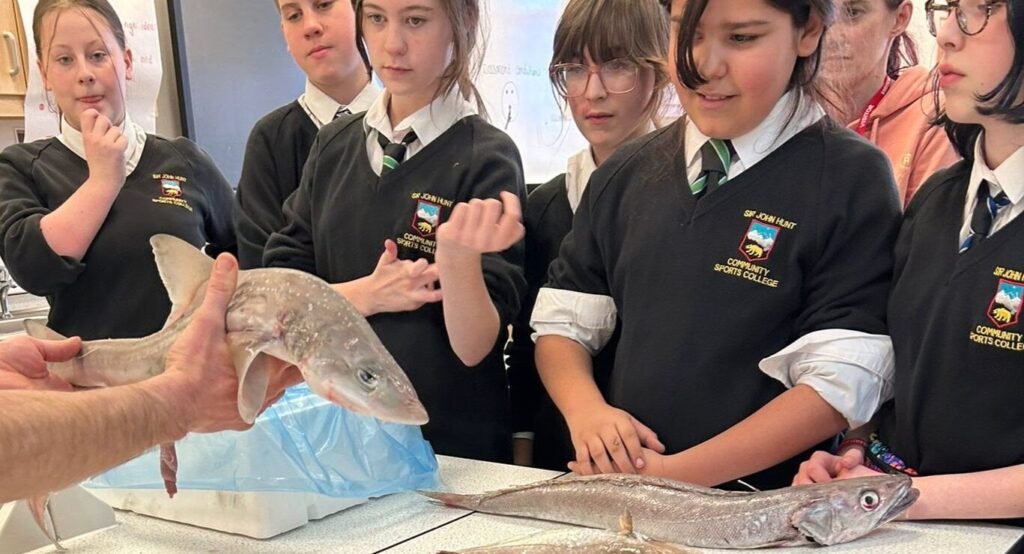A year-old initiative that converts discarded fish into school meal products in Plymouth, UK, is seeking philanthropic investment to mechanize production and meet demand across the city’s education system.
The Plymouth Fish Finger project, which uses by-catch species from local fishing vessels under 10 meters, has completed its pilot phase with successful taste-testing among students. The project now requires funding to produce 36,000 fish fingers needed for Plymouth’s school meal program.
Led by the University of Plymouth alongside Sole of Discretion CIC, Plymouth Fishing & Seafood Association and meal provider CATERed, the initiative processes species including whiting, pouting and dogfish that would otherwise be discarded or sold for as little as £0.20 per kilogram ($0.27/kg).
Students at Sir John Hunt Community College participated in developing the product through taste-testing sessions for different fish varieties and breadcrumb combinations.
“Our next challenge is to upscale the process and ensure it’s truly sustainable,” said Clare Pettinger from the University of Plymouth, who leads the research.
The project forms part of the national FoodSEqual program examining improved food access across Britain. Southwest England’s waters contain over 50 fish species, many underutilized compared to popular varieties like cod and haddock.

